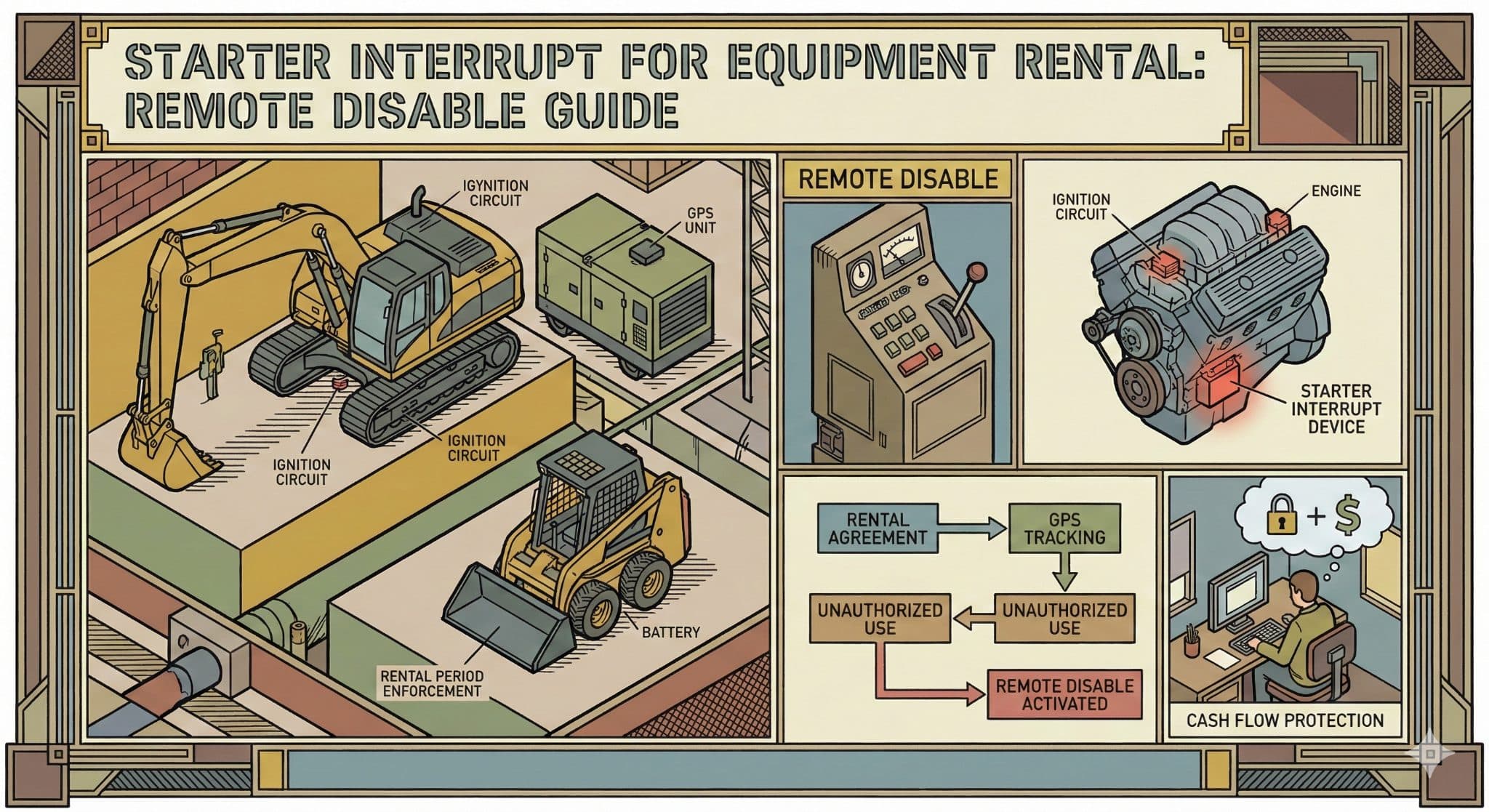If you search for "GPS tracker cost," you will find options ranging from a $29 Apple AirTag to a $1,000 enterprise telematics gateway. Why is the gap so wide? Because the answer depends entirely on what you are tracking and why.
Are you a parent protecting a teenage driver? Or are you a fleet manager trying to reduce fuel costs across 50 heavy-duty trucks? These are two different worlds with two different price tags.
In this guide, we will break down the real costs for both consumer and business tracking—and reveal the hidden fees (like API access and "retention upgrades") that most vendors try to bury in the fine print.
Looking for Personal Tracking? (Cars, Kids, Elderly Parents)
If you need to track a single personal vehicle, a spouse, or a family member, you don't need complex fleet analytics. Consumer GPS trackers typically cost $20-$50 for the device and roughly $25/month for service.
For top-rated personal tracking solutions, try Spytec at Visit our partner site →
Managing a business fleet? Keep reading below.
The Difference: GPS Tracking vs. Telematics
To understand B2B pricing, you must first understand the difference between "dots on a map" and actual fleet intelligence. This distinction is the primary driver of cost.
- Basic GPS Tracking ($): This answers the question: "Where is my asset?" It provides location updates, speed, and basic stop/start history. This is ideal for trailers, dumpsters, and simple theft recovery.
- Telematics ($$): This answers the question: "How is my asset performing?" It connects to the vehicle's computer (ECU) to read engine diagnostics, fuel consumption, idling time, harsh braking events, and seatbelt usage.
The Price Impact: A simple GPS asset tracker might cost $15/month. A full telematics unit that pulls engine data requires more expensive hardware and higher cellular data usage, pushing the cost to $30-$40/month.
The Three Main Cost Components
1. Hardware Costs (Upfront vs. Leased)
In the commercial space, hardware complexity dictates the price:
- Asset Trackers ($50 - $100): Simple, battery-powered ruggedized slabs. Designed to ping once or twice a day and last for years.
- Telematics Plug-ins ($80 - $150): Devices that plug into the OBD-II port of light-duty trucks and vans.
- Hardwired & AI Hardware ($200 - $600+): Specialized units for yellow iron (construction) or dash cams that process video in real-time.
2. Subscription & Volume Pricing
Your monthly fee pays for the cellular connection and software access. However, volume matters. Most providers offer tiered discounts as your fleet grows.
- 1-24 Vehicles: List price (e.g., $30/mo).
- 25-99 Vehicles: Typically 10-15% discount.
- 100+ Vehicles: negotiated enterprise rates.
3. Hidden Contract Costs (The "Lock-In")
This is where businesses get burned. Many legacy providers (like Samsara or Verizon Connect) require 36-month contracts. If you sell your trucks or downsize your fleet, you are still on the hook.
The Termination Pain: Early termination fees usually equal the entire remaining value of the contract. Example: If you have 10 vehicles at $35/mo and want to cancel with 18 months left, you will owe an immediate lump sum of $6,300.
Software & Hidden Fees: Where Budgets Break
Beyond the base subscription, many providers use a "modular" pricing model. The base price looks attractive ($20/month!), but critical business features are gated behind paywalls. When comparing quotes, specifically ask about these upsells:
- API Access Fees: Do you want to pull GPS data into your own ERP or dispatch system? Some enterprise providers charge hundreds of dollars a month just to "turn on" the API key.
- Video Retention: Standard dash cam plans often only keep video for 30-60 days. If you want a year of history for liability protection, expect a massive price hike.
- Maintenance Modules: Want to track oil changes and tire rotations automatically? That might be an extra $5/vehicle/month.
2026 Price Comparison: B2B Leaders
How does the market stack up? We've analyzed the current pricing structures of major players in the commercial space. Note: Pricing is estimated based on publicly available data.
| Provider | Best For | Est. Monthly Cost | Contract Terms |
|---|---|---|---|
| Hapn | Mixed Fleets & Equipment | $25 - $30 | Monthly or Annual (No 3-year lock-in) |
| Samsara | Enterprise Trucking | $27 - $35 + Hardware | Strict 36 Months |
| Verizon Connect | Service Fleets | $23 - $45 | Typically 36 Months |
| Geotab | Large Government/Utility | $30 - $40 (via resellers) | Varies by Reseller |
ROI: When Does the Tracker Pay for Itself?
Instead of focusing solely on expense, successful businesses focus on ROI. A GPS tracking system usually pays for itself within the first 6 months through three primary savings channels.
1. Theft Recovery: The One-Time Payoff
The math here is simple. If you rent out skid steers worth $40,000 each, recovering just one stolen asset covers the cost of tracking your entire fleet for years. With theft recovery solutions, you aren't just buying data; you are buying insurance.
2. Fuel & Idling Reduction
According to the Department of Energy, an idling heavy-duty truck consumes about 0.8 gallons of fuel per hour. Across a fleet of 50 vehicles, eliminating just 30 minutes of unnecessary idling per day can save over $20,000 annually in fuel costs alone.
The Break-Even Formula
How many hours of labor do you need to save to pay for the system?
(Monthly System Cost) ÷ (Hourly Labor/Operating Cost) = Hours Saved Needed
Example:
($30 per month GPS fee) ÷ ($60 per hour labor+fuel cost) = 0.5 Hours
If the system saves you just 30 minutes of wasted idling, administration, or unauthorized use per month, it is effectively free.
FAQ: GPS Tracker Pricing
What is the difference between personal and business GPS trackers?
Personal trackers are designed for simplicity, often tracking a single vehicle with a mobile app. Business trackers (Hapn) offer "fleet views," allowing you to see 50+ assets on one map, run utilization reports, and integrate with dispatch software.
Why is telematics more expensive than standard GPS?
Standard GPS simply pings location. Telematics involves reading complex data from the vehicle's engine computer (ECU), which requires more sophisticated hardware and larger cellular data plans to transmit engine health, fuel, and safety data.
Do I get a discount if I have a large fleet?
Yes. While listed pricing is often for single units, most providers (including Hapn) offer volume discounts for fleets with 15+ vehicles. Always ask for a volume quote rather than paying the online list price.
Ready to See Your True Costs?
Don't get trapped in a 3-year contract with hidden penalties. Hapn offers transparent pricing with no lock-ins, tailored for mixed fleets of any size.


